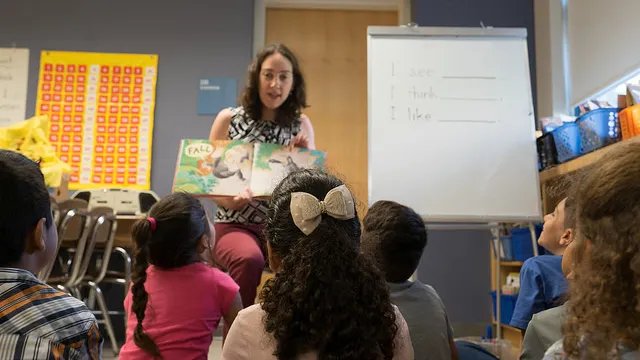See how Ellevation's unified ELD solution can drive student growth. Register now for our webinar on February 18.
Special Education, ESL or Both? The Case for Dual Language Assessment


Special Education, ESL or Both? The Case for Dual Language Assessment
Editors note: At Ellevation, we take pride in sharing insights from exceptional practitioners across the country about promising instructional models from the field. Here’s an article from Diane Staehr Fenner, president of DSF Consulting and an author of many works in the field of EL education.
Recently published research starkly proves what many ELL educators already know: ELL students are routinely under or over-identified in Special Education programs. Too often, ELL students in need are denied special services because district professionals cannot differentiate between a language barrier or learning disability. Alternatively, many ELL students placed in Special Education programs have later been found to have no disability at all. Even when students are properly referred for special services, they may often receive the wrong types of services - witness the astonishingly high incidence of autism among Asian American students. Thousands of children and families may suffer as a result of misidentification.
Thankfully, a well-understood diagnostic practice can help educators make much better decisions when it comes to the pre-referral or early intervention process for ELLs: Dual Language Assessment (DLA). This blog post describes what a DLA is, details the urgent need for districts to consider implementing DLA in order to make more informed decisions about ELLs’ special education referrals, and ends with an opportunity for you to take part in a survey on this important topic.
What is Dual Language Assessment?
As a former DLA teacher with Fairfax County Public Schools, VA, I assessed Spanish-speaking ELLs who were not making expected academic progress. The DLA we used was a performance-based assessment, delivered in the student’s primary language and English, which allowed us to gather more information about the role of language in his or her learning challenges. According to the Virginia DOEs handbook for educators of ELLs with suspected disabilities, the DLA is designed to determine an ELL’s home language proficiency and skills, establish English language proficiency and skills within the second language acquisition continuum, and identify the student’s dominant language(s), if any, for the purpose of further evaluation and assessment if this is determined to be necessary.
In my book Advocating for English Learners: A Guide for Educators, I describe how DLA results can help support more equitable and accurate assessment of ELLs when it comes to crucial placement decisions for special services. A DLA allows school-based teams to compare a student’s progress to ELLs with similar linguistic, cultural, and educational backgrounds. In addition, the student’s cultural, educational, and linguistic history gathered as a crucial component of the DLA allows educators to view each ELL more holistically. As a result, when a team collaborates and considers the DLA results, teams are more likely to be presented a multifaceted view of the student’s strengths as well as needs in both languages and make informed decisions. Consequently, those ELLs are more likely to receive the linguistic and/or special services best suited to their unique circumstances, and districts can better ensure both equity and cost-effective service delivery.
Purpose of this Survey
In spite of these benefits, our observation is that many districts have not established Dual Language Assessment practices, or if they do, the implementation of those practices is often uneven. We want to know why. In partnership with Ellevation, my company is researching how districts use DLA for their ELLs who are in the pre-referral or early intervention process for special education referral. We believe this is the first national survey of ELL educators around Dual Language Assessment, and our hope is that your responses can help the field better understand the current landscape for DLA support. Your individual responses are confidential, but we will publish the aggregate results in a subsequent blog for the benefit of our ELL community. Please take a moment to tell us about your experiences. Thank you!